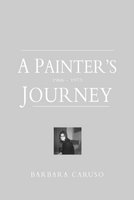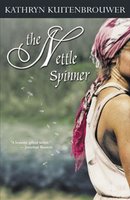 Caroline Adderson, Pleased to Meet You (Thomas Allen Publishers, 2006).
Caroline Adderson, Pleased to Meet You (Thomas Allen Publishers, 2006).In my review of this one in The Women’s Post, I wrote: “Adderson's stories are powerfully compressed, as good short stories are by definition, but they never feel rushed. They unfold organically, each at its own pace. Along the way they offer up a multitude of stunning moments through precise, evocative, often unexpected images. These stories are by turns unsettling and uplifting, sometimes both at once. […] [Caroline] Adderson is a master of the short story form, and it's a great pleasure to see her return to it after the two successful novels that followed her first collection. […] Pleased to Meet You is a fine collection that is worth savouring.”
To read my full review, click here.
 Howard Akler, The City Man (Coach House Books, 2005).
Howard Akler, The City Man (Coach House Books, 2005).This novel features prose that works like poetry. It’s a short book with very short chapters, some only a paragraph or two long. Yet it evokes an extraordinary richness of detail and brings vividly to life a moment in time, 1930s Toronto, and a particular sub-culture, “whiz mobs” (pickpockets) that inhabit the city’s Jewish underworld. Eli Morenz, a newspaperman recovering from a nervous breakdown, is in search of the story that will get him back in the game. When he stumbles across pickpocket Mona Kantor, he thinks he’s found it. But of course, it’s not that simple… The voices of the characters are pitch-perfect, replete with period slang without any sacrifice of comprehensibility. The City Man is an utterly fascinating gem of a book.
 M.T. Anderson, The Astonishing Life of Octavian Nothing, Traitor to the Nation, Volume I: The Pox Party (Candlewick Press, 2006).
M.T. Anderson, The Astonishing Life of Octavian Nothing, Traitor to the Nation, Volume I: The Pox Party (Candlewick Press, 2006).This one is billed as a novel for teenagers but it provided this adult reader with plenty of food for thought. I didn’t write my own review of it since I handed my copy over to my niece the minute I finished reading it. So I’ll direct you instead to Matthew Cheney’s review at The Mumpsimus in which he very eloquently articulates what makes this novel such a spectacular read:
Regardless of how it is sold, Octavian Nothing is an astounding book. It tells the story of a slave before and during the American Revolution, a boy whose mother is brought to the colonies from Africa and sold, along with her young son, to a society of scientists that has some similarities to the American Philosophical Society and its ilk. He and his mother become part of a strange experiment, and the nature of that experiment changes over the course of the novel, until eventually Octavian escapes and joins a militia fighting against the British. The story is episodic and picaresque, the many years of events linked together through the authority of Anderson's narrative voice, which is mostly built from Octavian's own words, though as the tale progresses more and more other documents are inserted, including newspaper clippings and letters from various other characters. Linking it all, too, are themes of freedom and restraint, of liberty and slavery, science and myth, knowledge and ignorance. These themes are handled deftly -- inextricable from the story and characters, yet always present, emerging from the conversations and events in ways far more complex than in even many heralded novels about such subjects. […] Complexity of themes and ideas is certainly welcome, but it is the quality of writing and structure that differentiates the well-intentioned novel from the great. Octavian Nothing is intelligently structured and brilliantly, beautifully written.
 Barbara Caruso, A Painter’s Journey: 1966-1973 (The Mercury Press, 2005).
Barbara Caruso, A Painter’s Journey: 1966-1973 (The Mercury Press, 2005).This book is essentially a transcription of a journal that Caruso kept in her early years as an artist. In it she documented her struggle, both material and creative, to establish herself as a painter. In my blog post about it, I singled out as particularly interesting the explicit links that Caruso drew throughout between her reading and her painting. I concluded: “Caruso’s voice is an honest, uncompromising, funny, smart and deeply thoughtful one. Whatever your artistic medium, whether you situate yourself as a creator or as an audience member, there is much of interest for you in A Painter’s Journey. I’m coming away from it thinking much more deeply and self-consciously about my creative process as a fiction writer.”
For more of my thoughts on this book, click here.
 Mark Haddon, A Spot of Bother (Random House, 2006).
Mark Haddon, A Spot of Bother (Random House, 2006).This novel tells the story of 61-year-old George Hall. The characteristically understated “spot of bother” of the title is George’s descent into madness after he discovers a lesion on his hip that he believes to be terminal skin cancer. In my blog review I praised it for “manag[ing] to be at once uproariously funny and highly disturbing,” and concluded: “It doesn’t gloss over any of the distressing details of George’s deteriorating mental state. Yet in the end the novel is somehow affirming in its depiction of life and family relationships in all their visceral messiness.”
For my full review, click here.
 Kathryn Kuitenbrouwer, The Nettle Spinner (Goose Lane Editions, 2005).
Kathryn Kuitenbrouwer, The Nettle Spinner (Goose Lane Editions, 2005).Many of you know Kathryn Kuitenbrouwer in her role as an editor at Bookninja. You should also know her as an enormously talented fiction writer. Her first novel, The Nettle Spinner, is riveting. In it, Kuitenbrouwer retells a Flemish folk tale (the nettle spinner of the title) and at the same time updates it, setting the contemporary version amid the sweat and the blood and the black flies of a treeplanting camp in northern Ontario. The result is a marvellous, powerfully sexual, dark modern fairy tale.
 Annette Lapointe, Stolen (Anvil Press, 2006).
Annette Lapointe, Stolen (Anvil Press, 2006).In her first novel, Stolen, Annette Lapointe takes the reader deep into the psyche and into the past of twenty-something Rowan Friesen, who makes his living as a thief and a small-time drug dealer on the fringes of a farming community not far outside of Saskatoon. Rowan is rarely likeable but always fascinating. In my review of the book, I praised Lapointe’s powers of description as “precise and idiosyncratic,” noting that: “The accumulation of detail over the course of the novel verges on overwhelming yet it’s deeply satisfying. It meshes very effectively with Rowan’s compulsive nature and that of the tech-geeks, meth addicts, and sufferers of mental illness that people his world.” I opined that Stolen is “a powerful and unconventional novel” that “marks a very impressive debut” for Lapointe.
To read my full review, click here and download the July-August 2006 issue of Word: Canada’s Magazine for Readers + Writers.
 Lynn Perkins, Criss Cross (HarperCollins, 2005).
Lynn Perkins, Criss Cross (HarperCollins, 2005).Criss Cross is a children’s/YA novel that focuses on a group of fourteen-year-old friends as they move through a spring and summer in their hometown of Seldem: Debbie who wishes that something different would happen to her, something good, soon; Hector who’s learning to play the guitar, dabbling in song writing, and trying to get up the courage to approach a girl in his guitar class who he has a crush on; and Lenny whose voracious reading of science books has translated into a mechanical ability that has him headed toward vocational school instead of university. It’s not an “issues” novel with a grand trauma at its centre but rather a gentle exploration of the subtle-on-the-outside, major-on-the-inside sort of shifts that are apt to occur in an adolescent summer. In my blog review I wrote: “The structure of the novel combined with the lyrical language used throughout give it a whimsical quality, but ultimately the characters are so fully drawn, so fallible and real, that it retains a sense of solidity as well.” I concluded, simply: “I loved this book.”
For my full review, click here.
 Lisa Robertson, The Men: A Lyric Book (BookThug, 2006).
Lisa Robertson, The Men: A Lyric Book (BookThug, 2006).I can’t provide a better description of this dazzling collection of poems than that which appears in the publisher’s catalogue:
The Men explores a territory between the poet and a lyric lineage among men. Following a tradition that includes Petrarch’s Sonnets, Cavalcanti, Dante’s works on the vernacular, Montaigne, and even Kant, Robertson is compelled towards the construction of the textual subjectivity these authors convey - a subjectivity that honours all the ambivalence, doubt, and tenderness of the human. Yet she remains angered by the structure of gender these works advance. It is this troubled texture of identification that she examines in The Men. How does a woman of the present century see herself, in men’s lyric texts of the renaissance, in the tradition of the philosophy of the male subject, as well as in the men that surround her, obfuscating, dear, idiotic and gorgeous as they often seem? What if ‘she’ wrote ‘his’ poems? At once intimate and oblique, humorous and heartbreaking, composed and furious, - The Men seeks to defamiliarize both who, and what men are.
This is definitely a book of ideas, but it is also a great pleasure to read simply by virtue of the way the words sound and feel.
 Thomas Wharton, The Logogryph (Gaspereau Press, 2004).
Thomas Wharton, The Logogryph (Gaspereau Press, 2004).In my blog review of The Logogryph, I described it as “a collection of highly original fictions” that “contains pieces written in the guise of myths, folktales, short stories, poetic fragments, philosophical musings, and academic treatises” which together add up to “a whole history of books and of reading.” I pronounced it “a brilliant book” and suggested that it would “stay with me for a long time.” It is and it has.
For my full review, click here.

9 comments:
I like this list because it's full of books I don't hear talked about a whole lot. I've been keeping my eye out for The Logogryph, as I remember you recommended it to me, and I've now added the Robertson poetry collection to my TBR list, as it looks very interesting.
I see Dorothy has mentioned exactly what I was going to say. I will return to read the complete reviews later, but have jotted down some unfamiliar titles.
Bloody hell, I put my comment for this under the Restless entry. I'm sorry. Hopefully, you will be able to correct that.
Wow, Kate, you win hands down for the 'fascinating books I've never even heard of' prize! I'm simply going to print this list out and try to see what I can get hold of from it...
Great list, Kate. Like Dorothy and others have mentioned, there are some new choices here. Writing them down...
A very intriguing list. I'm taking notes, too. Thanks!
Well, like everyone before me has already said...wow, your list is so full of new and different titles!! I have written down several of them!! I love reading about books that are not already plastered all over the magazines!!
I just got Octavian Nothing and will read it very soon. I really can't wait. Some of these others look quite interesting, too. I'm new here, so it was good to look at some of your favorites.
Yeah, this is such an exciting list: you've compressed such a great range of stuff in such a short selection. It's wonderful to see Barbara Caruso's overlooked memoir on such a list!
Stuart
Post a Comment